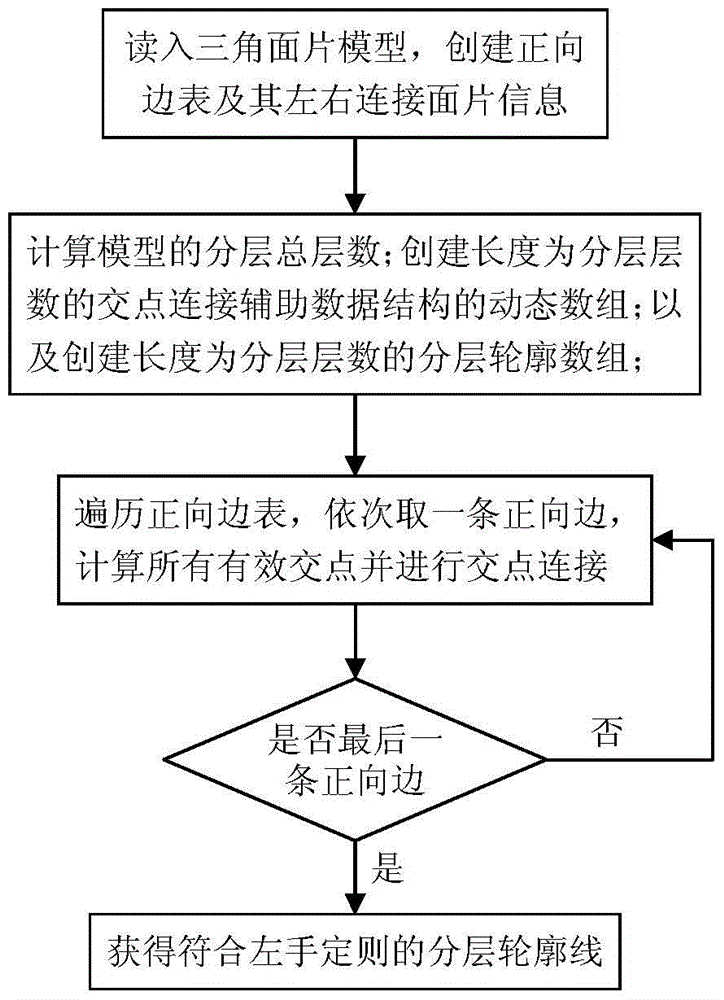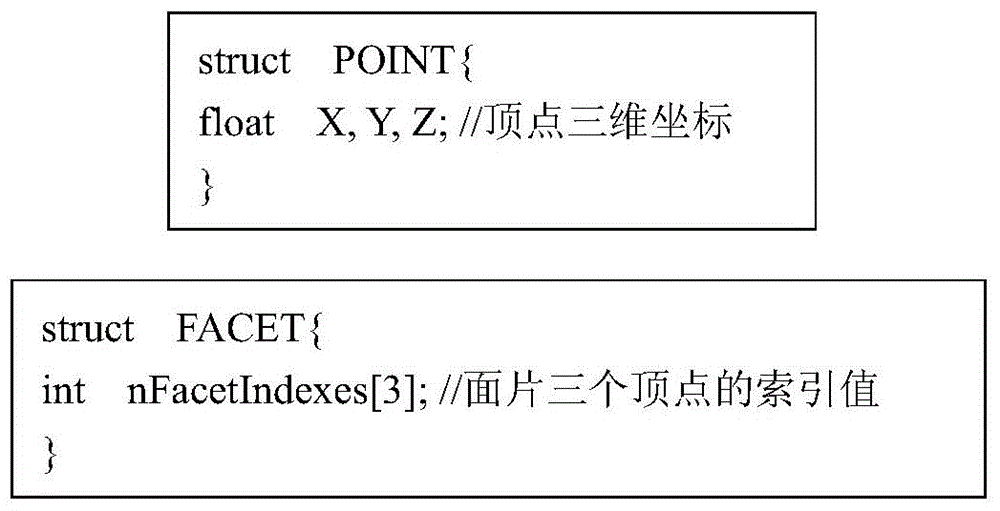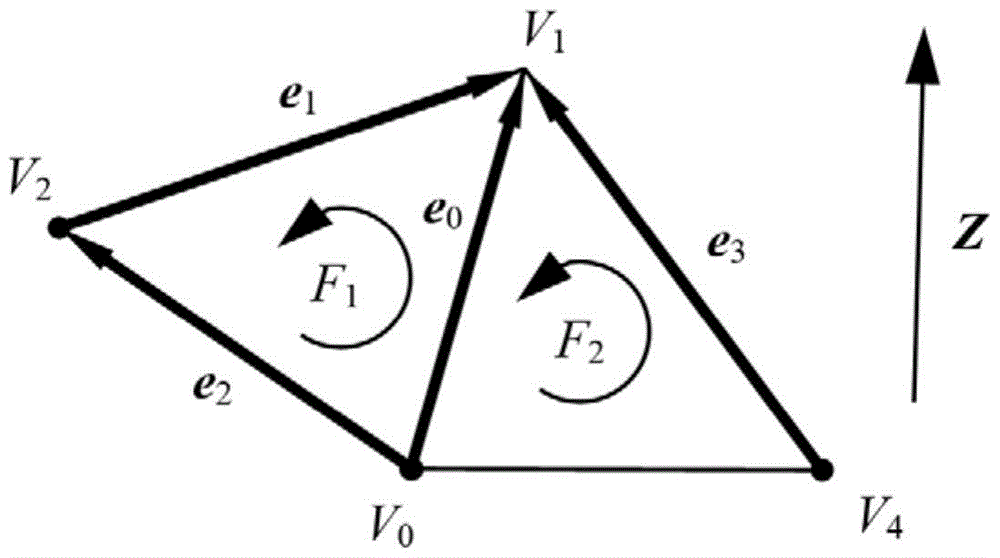A Edge-by-Edge Layering Method for Triangular Surface Model in Rapid Prototyping
A triangular facet and facet technology, applied in special data processing applications, instruments, electrical digital data processing, etc., can solve the problem of affecting layering efficiency, geometric continuity layering, and poor use of edge geometric continuity in the model and other issues to achieve the effect of improving layering efficiency and efficient connection
- Summary
- Abstract
- Description
- Claims
- Application Information
AI Technical Summary
Problems solved by technology
Method used
Image
Examples
Embodiment Construction
[0068] Please check Figure 1 to Figure 14 , a side-by-side layering method of a triangular mesh model in rapid prototyping, which specifically includes the following steps:
[0069] Step 1, based on the triangular patch model data read into the memory, remove redundant points, create a forward edge table and its left and right connection patch information;
[0070] Such as figure 2 As shown, the vertex structure POINT contains three floating-point variables for storing the three-dimensional coordinates of the vertex, and the patch structure FACET contains an array of integer variables with a length of 3. The sequence container vector class in the C++ standard template library is used to declare the point table vectorm_vecPoints and the facet table vectorm_vecFacets. When reading the triangular patch model, such as the STL model, into the memory from the hard disk, use the associated container classes in the C++ standard template library, such as set, map, multimap, etc., t...
PUM
 Login to View More
Login to View More Abstract
Description
Claims
Application Information
 Login to View More
Login to View More - R&D
- Intellectual Property
- Life Sciences
- Materials
- Tech Scout
- Unparalleled Data Quality
- Higher Quality Content
- 60% Fewer Hallucinations
Browse by: Latest US Patents, China's latest patents, Technical Efficacy Thesaurus, Application Domain, Technology Topic, Popular Technical Reports.
© 2025 PatSnap. All rights reserved.Legal|Privacy policy|Modern Slavery Act Transparency Statement|Sitemap|About US| Contact US: help@patsnap.com



